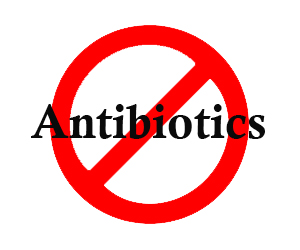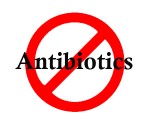Last week California Governor Jerry Brown signed into law a bill that bans the use of antibiotics in meat production. The legislation, SB-27 Livestock: use of antimicrobial drugs, prohibits the administration of antibiotics in livestock unless ordered by a licensed veterinarian via a prescription or veterinary feed directive. As such, the law bans using drugs to promote weight gain or improve feed efficiency.
Several organizations, including the National Resources Defense Council (NRDC), are applauding the legislation. On the NRDC’s blog, senior attorney with the organization’s health program, Avinash Kar, praised the passage of the final bill. “We’ve fought for many years to get the FDA to take genuine action on this issue, but the FDA has basically given the issue lip service and failed to take meaningful action,” wrote Kar.
The legislation, also the most stringent nationwide, goes into effect January 1, 2018. It requires that the Department of Food and Agriculture, in collaboration with the Veterinary Medical Board, the State Department of Health, and other organizations put together antimicrobial stewardship guidelines and best management practices on how to properly use “medically important antimicrobial drugs. The departments would also be required to collect data on the use and sales of these drugs, along with data related to antibiotic resistant bacteria, and livestock management practice data.
Violation in the bill’s provisions will result in a civil penalty of up to $250 for each day the violation occurs, as well as up to $500 in administrative fines for each day the violation occurs.
The use of antibiotics in meat and poultry has been highly controversial for years, as it has been blamed for an increase in antibiotic-resistant infections. In addition, resistant bacteria can be transmitted to humans through the consumption of food. Antibiotic resistance and food safety has been a high priority by the CDC, which estimates that Salmonella and Campylobacter, cause nearly 410,000 antibiotic-resistant infections in the United States annually.





These are the same people that refuse to have their children vaccinated against polio and such.
OK, how is this to change product labeling. I personally want to eat meat products that have been treated to prevent things such as hoof and mouth, mad cow etc.
If Californians choose to eat potentially sick animals, more power to them. As for me, I prefer to eat less sickly animals.
As far as humans becoming “antibiotic resistant” maybe humans should not be getting prescriptions for antibiotics every time they have a runny nose. This is the more likely source of resistance.
Look at the areas of the world that do not use antibiotics in their live stock. China for example. Each year the work is infected by flu viruses that originate from their swine stock. Could the world be spared this ever deadly virus if their animals had some level of antibiotic resistance. I wonder?
Basically what this will do is cause some farms to go out of business and cause prices to sky rocket, I would like to see the data that would show this is the right thing to do to stop the antibiotic resistant bacteria.